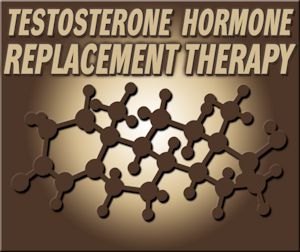Introduction to Late-Onset Hypogonadism
Late-onset hypogonadism (LOH), also known as age-related low testosterone, is a clinical and biochemical syndrome characterized by a deficiency in serum testosterone levels in conjunction with specific signs and symptoms. This condition is increasingly prevalent among aging American males, affecting their quality of life and overall health. As the population ages, the importance of effective treatments for LOH becomes paramount, and research plays a critical role in this endeavor.
The Impact of Research on LOH Understanding
Research has significantly advanced our understanding of LOH. Studies have elucidated the physiological mechanisms behind testosterone decline and its correlation with symptoms such as decreased libido, fatigue, and mood disturbances. Through rigorous clinical trials and observational studies, researchers have been able to identify the most common symptoms and their severity, which aids in the accurate diagnosis and management of LOH.
Innovations in Diagnostic Techniques
One of the key areas where research has made strides is in the development of diagnostic techniques. Traditional methods of measuring testosterone levels have been refined, and new biomarkers are being explored to enhance the precision of LOH diagnosis. For instance, research into the diurnal variation of testosterone and the use of free testosterone measurements has improved the ability to diagnose LOH accurately, ensuring that American males receive the appropriate treatment.
Advancements in Treatment Options
The landscape of LOH treatment has been transformed by research-driven innovations. Testosterone replacement therapy (TRT) remains the cornerstone of treatment, but research has led to the development of various delivery methods, including gels, patches, and long-acting injections, which cater to the diverse needs and preferences of patients. Moreover, ongoing studies are investigating the potential of selective androgen receptor modulators (SARMs) as a novel treatment option, which could offer the benefits of testosterone with fewer side effects.
Exploring the Safety and Efficacy of Treatments
Safety and efficacy are paramount in the treatment of LOH, and research has been instrumental in addressing these concerns. Clinical trials have provided valuable data on the long-term effects of TRT, helping to mitigate risks such as cardiovascular events and prostate issues. Additionally, research has explored the impact of TRT on bone density, muscle mass, and cognitive function, offering a comprehensive view of its benefits and potential drawbacks.
The Role of Lifestyle Interventions
Research has also highlighted the importance of lifestyle interventions in managing LOH. Studies have shown that regular exercise, a balanced diet, and adequate sleep can positively influence testosterone levels and alleviate symptoms. This holistic approach, supported by research, empowers American males to take an active role in their health and complements pharmacological treatments.
Future Directions in LOH Research
The future of LOH research is promising, with ongoing studies focused on personalized medicine. Genetic research and the use of big data are paving the way for tailored treatment plans that consider individual variations in testosterone metabolism and response to therapy. Furthermore, research into the psychosocial aspects of LOH is gaining traction, aiming to address the emotional and social challenges faced by affected individuals.
Conclusion: The Continuous Evolution of LOH Treatment
The role of research in improving late-onset hypogonadism treatments in the US cannot be overstated. Through continuous investigation and innovation, researchers are enhancing our understanding of LOH, refining diagnostic techniques, and developing safer and more effective treatments. As research progresses, American males can look forward to improved management of LOH, leading to better health outcomes and an enhanced quality of life.
Contact Us Today For A Free Consultation

- Exploring Alternatives to TRT for Late-Onset Hypogonadism in American Males [Last Updated On: March 9th, 2025] [Originally Added On: March 9th, 2025]
- Nutrition's Role in Managing Late-Onset Hypogonadism in American Males [Last Updated On: March 17th, 2025] [Originally Added On: March 17th, 2025]
- Future of Late-Onset Hypogonadism Treatment: Innovations and Personalized Approaches [Last Updated On: March 17th, 2025] [Originally Added On: March 17th, 2025]
- Late-Onset Hypogonadism: Impact on Mood, Energy, and Quality of Life in American Men [Last Updated On: March 17th, 2025] [Originally Added On: March 17th, 2025]
- Genetic Insights into Late-Onset Hypogonadism in Aging American Males [Last Updated On: March 20th, 2025] [Originally Added On: March 20th, 2025]
- Late-Onset Hypogonadism: Effects on Muscle Mass and Treatment Options in American Men [Last Updated On: March 20th, 2025] [Originally Added On: March 20th, 2025]
- Late-Onset Hypogonadism: Prevalence, Economic Impact, and Management Challenges in American Men [Last Updated On: March 20th, 2025] [Originally Added On: March 20th, 2025]
- Late-Onset Hypogonadism: Symptoms, Diagnosis, and Management in American Males [Last Updated On: March 21st, 2025] [Originally Added On: March 21st, 2025]
- Preventing Complications of Late-Onset Hypogonadism in American Men: Strategies and Insights [Last Updated On: March 21st, 2025] [Originally Added On: March 21st, 2025]
- Late-Onset Hypogonadism: Impact on Fertility and Health in American Men [Last Updated On: March 22nd, 2025] [Originally Added On: March 22nd, 2025]
- Exercise as a Key Strategy for Managing Late-Onset Hypogonadism in American Males [Last Updated On: March 22nd, 2025] [Originally Added On: March 22nd, 2025]
- Late-Onset Hypogonadism: Early Detection and Management in American Males [Last Updated On: March 22nd, 2025] [Originally Added On: March 22nd, 2025]
- Hormone Replacement Therapy for Late-Onset Hypogonadism: Benefits, Risks, and Guidelines [Last Updated On: March 22nd, 2025] [Originally Added On: March 22nd, 2025]
- Understanding and Managing Late-Onset Hypogonadism in American Men Over 40 [Last Updated On: March 23rd, 2025] [Originally Added On: March 23rd, 2025]
- Managing Late-Onset Hypogonadism: Emotional Challenges and Support for American Men [Last Updated On: March 23rd, 2025] [Originally Added On: March 23rd, 2025]
- Stress Exacerbates Late-Onset Hypogonadism in American Males: Management Strategies [Last Updated On: March 23rd, 2025] [Originally Added On: March 23rd, 2025]
- Understanding Late-Onset Hypogonadism: Impacts and Management in Aging Men [Last Updated On: March 23rd, 2025] [Originally Added On: March 23rd, 2025]
- Exploring the Link Between Late-Onset Hypogonadism and Diabetes in American Males [Last Updated On: March 23rd, 2025] [Originally Added On: March 23rd, 2025]
- Late-Onset Hypogonadism: Understanding Symptoms, Impacts, and Management Strategies for American Men [Last Updated On: March 23rd, 2025] [Originally Added On: March 23rd, 2025]
- Late-Onset Hypogonadism: Impact on Sleep and Holistic Management Strategies for American Men [Last Updated On: March 23rd, 2025] [Originally Added On: March 23rd, 2025]
- Late-Onset Hypogonadism's Cognitive Impact in American Men: Awareness and Management Strategies [Last Updated On: March 24th, 2025] [Originally Added On: March 24th, 2025]
- Late-Onset Hypogonadism: Understanding TRT Benefits and Risks in American Males [Last Updated On: March 24th, 2025] [Originally Added On: March 24th, 2025]
- Understanding Late-Onset Hypogonadism: Symptoms, Impact, and Management for American Men [Last Updated On: March 24th, 2025] [Originally Added On: March 24th, 2025]
- Managing Late-Onset Hypogonadism: Symptoms, Diagnosis, and Treatment Options for American Men [Last Updated On: March 24th, 2025] [Originally Added On: March 24th, 2025]
- Dietary Strategies to Manage Late-Onset Hypogonadism in American Men [Last Updated On: March 24th, 2025] [Originally Added On: March 24th, 2025]
- Understanding Late-Onset Hypogonadism: Prevalence, Symptoms, and Management in American Men [Last Updated On: March 24th, 2025] [Originally Added On: March 24th, 2025]
- Late-Onset Hypogonadism: Symptoms, Diagnosis, and Management in American Men [Last Updated On: March 24th, 2025] [Originally Added On: March 24th, 2025]
- Late-Onset Hypogonadism: Prevalence, Risks, and Management in American Men [Last Updated On: March 24th, 2025] [Originally Added On: March 24th, 2025]
- Diagnosing Late-Onset Hypogonadism: Symptoms, Testing, and Challenges in American Men [Last Updated On: March 25th, 2025] [Originally Added On: March 25th, 2025]
- Late-Onset Hypogonadism: Overcoming Stigma and Enhancing Men's Health in America [Last Updated On: March 25th, 2025] [Originally Added On: March 25th, 2025]
- Understanding Late-Onset Hypogonadism: Symptoms, Impact, and Management for American Men [Last Updated On: March 25th, 2025] [Originally Added On: March 25th, 2025]
- Early Intervention Benefits for Late-Onset Hypogonadism in American Men [Last Updated On: March 25th, 2025] [Originally Added On: March 25th, 2025]
- Managing Late-Onset Hypogonadism: Symptoms, Diagnosis, and Treatment for American Men [Last Updated On: March 26th, 2025] [Originally Added On: March 26th, 2025]
- Late-Onset Hypogonadism in American Males: Importance of Monitoring and Management [Last Updated On: March 26th, 2025] [Originally Added On: March 26th, 2025]
- Managing Late-Onset Hypogonadism: A Multidisciplinary Approach for American Men [Last Updated On: March 26th, 2025] [Originally Added On: March 26th, 2025]
- Advocating for Better Late-Onset Hypogonadism Care: A Call to Action for American Men [Last Updated On: March 26th, 2025] [Originally Added On: March 26th, 2025]
- Late-Onset Hypogonadism: Understanding, Managing, and Maintaining Independence in American Men [Last Updated On: March 26th, 2025] [Originally Added On: March 26th, 2025]
- Advanced Technology Enhances LOH Diagnosis in American Males [Last Updated On: March 26th, 2025] [Originally Added On: March 26th, 2025]
- Managing Late-Onset Hypogonadism: Symptoms, Diagnosis, and Treatment for Aging Men [Last Updated On: March 26th, 2025] [Originally Added On: March 26th, 2025]
- Late-Onset Hypogonadism: Diagnosis, Treatments, and Lifestyle Management for American Men [Last Updated On: March 27th, 2025] [Originally Added On: March 27th, 2025]
- Understanding Late-Onset Hypogonadism: Symptoms, Diagnosis, and Treatment for American Men [Last Updated On: March 27th, 2025] [Originally Added On: March 27th, 2025]
- Late-Onset Hypogonadism: Impact on Intimate Relationships and Management Strategies [Last Updated On: March 27th, 2025] [Originally Added On: March 27th, 2025]
- Late-Onset Hypogonadism: Symptoms, Diagnosis, and Management Strategies for American Men [Last Updated On: March 27th, 2025] [Originally Added On: March 27th, 2025]
- Cultural Perceptions and Management of Late-Onset Hypogonadism in American Men [Last Updated On: March 27th, 2025] [Originally Added On: March 27th, 2025]
- Understanding Late-Onset Hypogonadism: Myths, Facts, and Management for American Men [Last Updated On: March 27th, 2025] [Originally Added On: March 27th, 2025]
- Legal Aspects of Late-Onset Hypogonadism: Diagnosis, Treatment, and Rights in the U.S. [Last Updated On: March 27th, 2025] [Originally Added On: March 27th, 2025]
- Holistic Treatment of Late-Onset Hypogonadism in American Males: A Comprehensive Approach [Last Updated On: March 27th, 2025] [Originally Added On: March 27th, 2025]
- Managing Late-Onset Hypogonadism: The Crucial Role of Mental Health Professionals [Last Updated On: March 28th, 2025] [Originally Added On: March 28th, 2025]
- Community Support Enhances Management of Late-Onset Hypogonadism in American Males [Last Updated On: March 28th, 2025] [Originally Added On: March 28th, 2025]
- Family Support Crucial for American Males with Late-Onset Hypogonadism [Last Updated On: March 28th, 2025] [Originally Added On: March 28th, 2025]
- Late-Onset Hypogonadism: Impacts and Strategies for Career Management in American Men [Last Updated On: March 28th, 2025] [Originally Added On: March 28th, 2025]
- Late-Onset Hypogonadism: Financial Implications and Management Strategies for American Men [Last Updated On: March 28th, 2025] [Originally Added On: March 28th, 2025]
- Late-Onset Hypogonadism: Impact on Self-Esteem and Treatment Options for American Men [Last Updated On: April 2nd, 2025] [Originally Added On: April 2nd, 2025]
- Peer Support Enhances Life Quality for American Males with Late-Onset Hypogonadism [Last Updated On: April 2nd, 2025] [Originally Added On: April 2nd, 2025]
- Managing Late-Onset Hypogonadism: Lifestyle Strategies for American Men's Health [Last Updated On: April 2nd, 2025] [Originally Added On: April 2nd, 2025]
- Navigating Insurance Coverage for Late-Onset Hypogonadism: Diagnosis and Treatment Options [Last Updated On: April 3rd, 2025] [Originally Added On: April 3rd, 2025]
- Understanding Late-Onset Hypogonadism: Symptoms, Treatment, and Lifestyle Management for American Males [Last Updated On: April 6th, 2025] [Originally Added On: April 6th, 2025]
- Late-Onset Hypogonadism: Symptoms, Social Impact, and Management in American Men [Last Updated On: April 8th, 2025] [Originally Added On: April 8th, 2025]
- Late-Onset Hypogonadism: Symptoms, Diagnosis, and Management in American Males [Last Updated On: April 9th, 2025] [Originally Added On: April 9th, 2025]
- Managing Late-Onset Hypogonadism: Strategies for Mental Health in American Men [Last Updated On: April 9th, 2025] [Originally Added On: April 9th, 2025]
- Managing Late-Onset Hypogonadism: Stress, Nutrition, and Holistic Approaches for American Men [Last Updated On: April 10th, 2025] [Originally Added On: April 10th, 2025]
- Late-Onset Hypogonadism in American Men: Advocacy and Personalized Care [Last Updated On: April 10th, 2025] [Originally Added On: April 10th, 2025]
- Nutritionists' Role in Managing Late-Onset Hypogonadism in American Males [Last Updated On: April 10th, 2025] [Originally Added On: April 10th, 2025]
- Exercise Strategies to Combat Late-Onset Hypogonadism in American Men [Last Updated On: April 11th, 2025] [Originally Added On: April 11th, 2025]
- Late-Onset Hypogonadism: Prevalence, Impact, and Management in American Men [Last Updated On: April 12th, 2025] [Originally Added On: April 12th, 2025]
- Managing Late-Onset Hypogonadism: Symptoms, Diagnosis, and Treatment for American Men [Last Updated On: April 12th, 2025] [Originally Added On: April 12th, 2025]
- Late-Onset Hypogonadism: Understanding and Managing Emotional Impacts in Men Over 40 [Last Updated On: April 14th, 2025] [Originally Added On: April 14th, 2025]
Word Count: 565





















